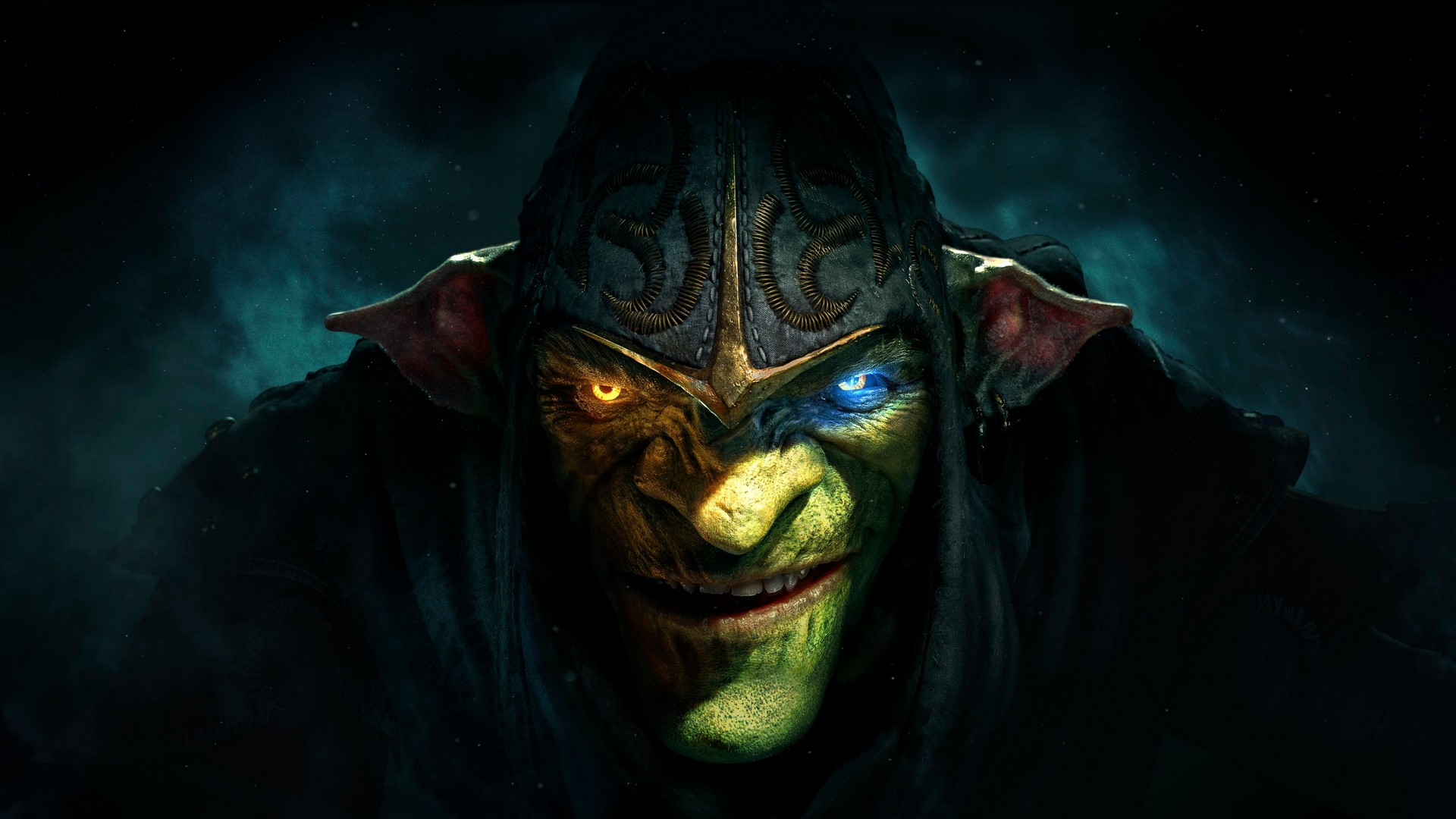The Walking Dead creator explains the creative process that led him to chart new territory in an alien fantasy epic: "I was trying to get out of the way as much as possible"
Interview | Writer Robert Kirkman and artist David Finch discuss their new fantasy comic Skinbreaker
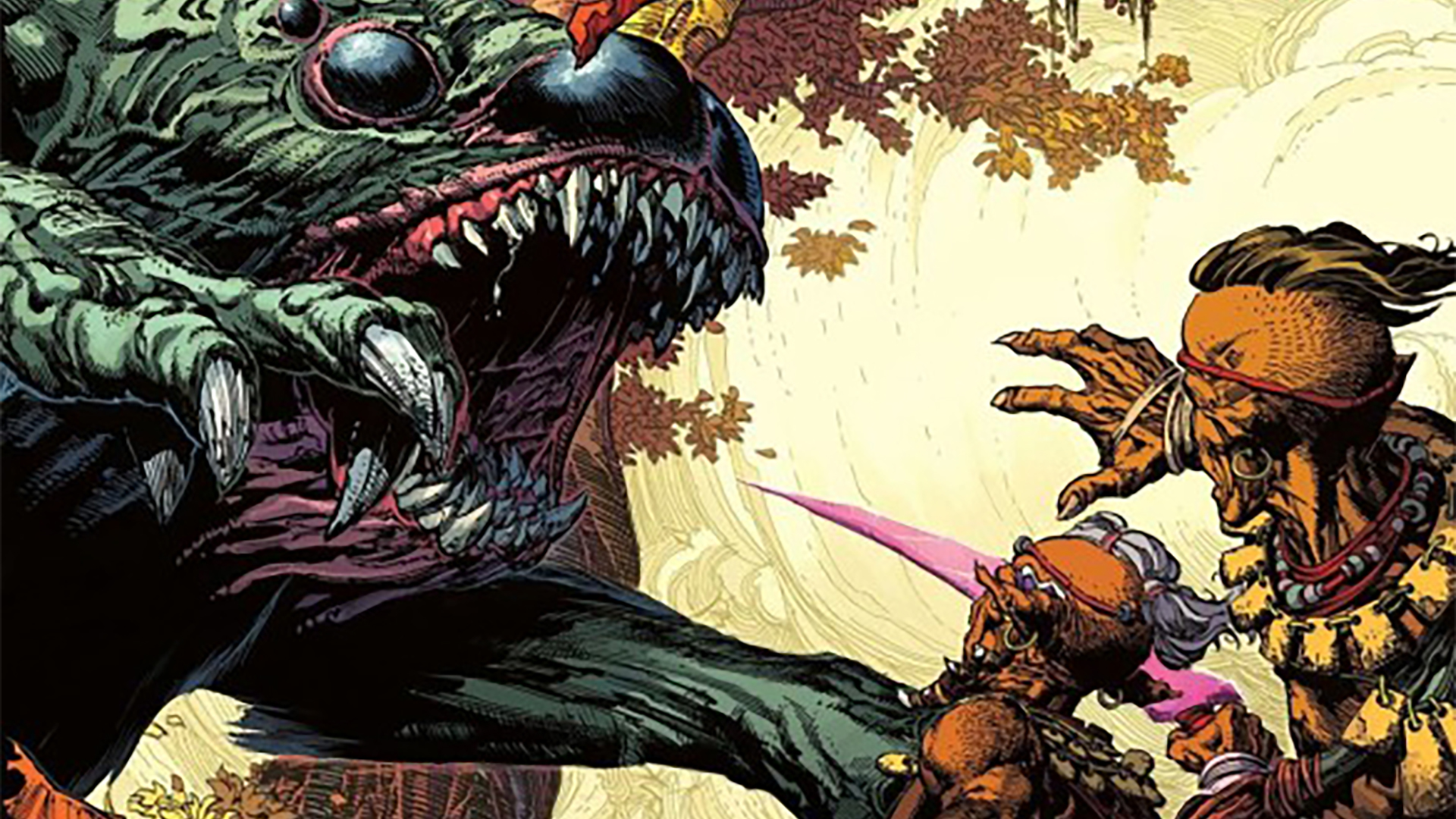
Weekly digests, tales from the communities you love, and more
You are now subscribed
Your newsletter sign-up was successful
Want to add more newsletters?

Every Friday
GamesRadar+
Your weekly update on everything you could ever want to know about the games you already love, games we know you're going to love in the near future, and tales from the communities that surround them.

Every Thursday
GTA 6 O'clock
Our special GTA 6 newsletter, with breaking news, insider info, and rumor analysis from the award-winning GTA 6 O'clock experts.

Every Friday
Knowledge
From the creators of Edge: A weekly videogame industry newsletter with analysis from expert writers, guidance from professionals, and insight into what's on the horizon.

Every Thursday
The Setup
Hardware nerds unite, sign up to our free tech newsletter for a weekly digest of the hottest new tech, the latest gadgets on the test bench, and much more.

Every Wednesday
Switch 2 Spotlight
Sign up to our new Switch 2 newsletter, where we bring you the latest talking points on Nintendo's new console each week, bring you up to date on the news, and recommend what games to play.

Every Saturday
The Watchlist
Subscribe for a weekly digest of the movie and TV news that matters, direct to your inbox. From first-look trailers, interviews, reviews and explainers, we've got you covered.

Once a month
SFX
Get sneak previews, exclusive competitions and details of special events each month!
Writer Robert Kirkman is one of the most successful modern comic creators thanks to his horror masterpiece The Walking Dead, his superhero epic Invincible, and, most recently, his hit line of Transformers/GI Joe crossover comics.
Kirkman's next story will take him into a less explored genre in his work, as he teams with artist David Finch for Skinbreaker, a fantasy tale set on an alien world where ancient traditions come into conflict with modern ideals.
Newsarama spoke with Kirkman and Finch ahead of Skinbreaker #1's September 24 release to discuss how the new comic evolved from Kirkman's love of Finch's art, the themes behind the alien fantasy, and how the art and script work fluidly together.
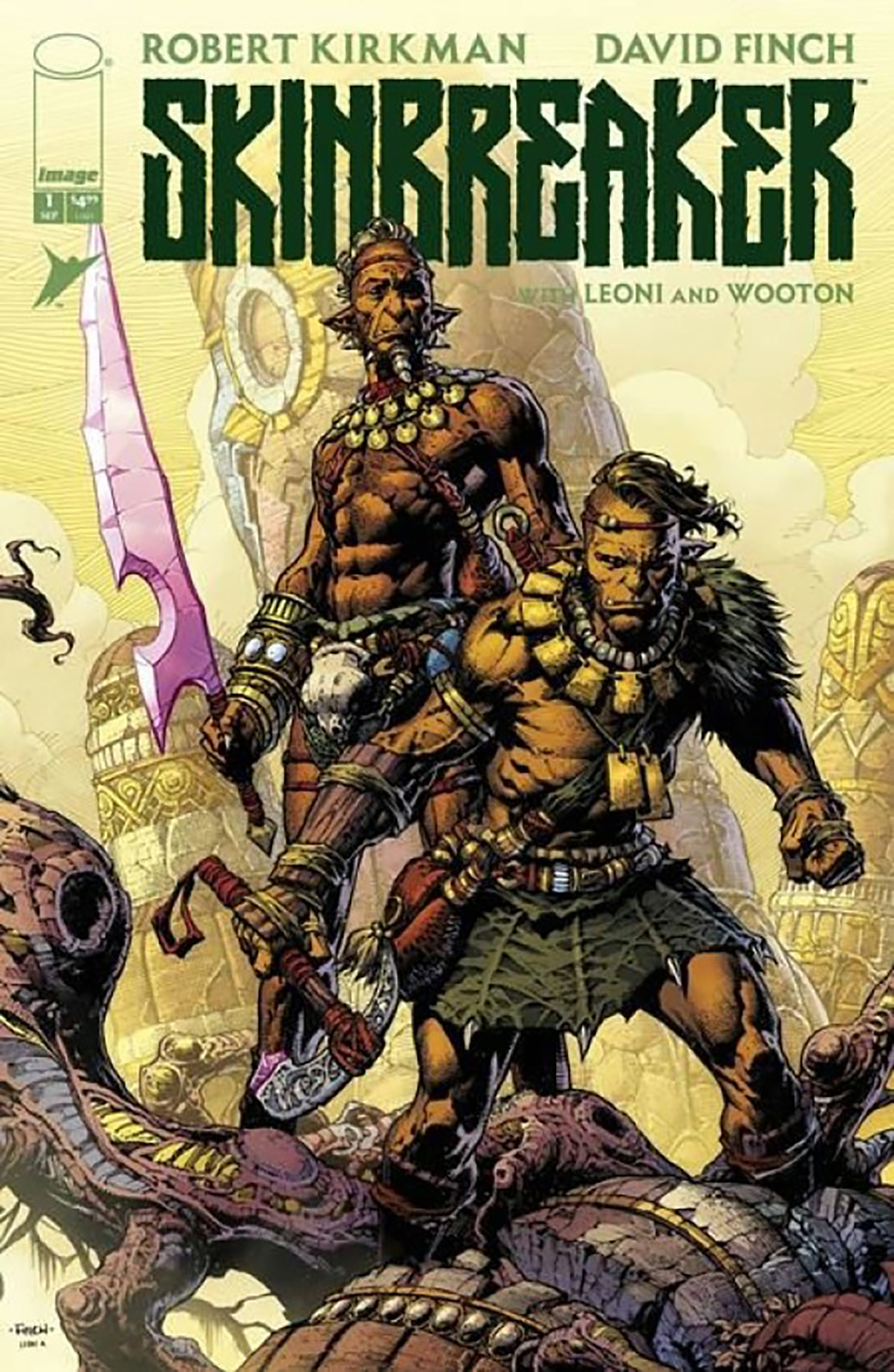
Newsarama: Robert, David, I want to start off by saying I really enjoyed the first issue of Skinbreaker. It feels so different from what I've seen from either of you before. Robert, what's your approach to moving into a genre like fantasy that's maybe a little less explored in your work?
Robert Kirkman: I try to approach every project trying to ensure that it offers my fanbase something different than they get from the other projects that I do. But everything I do is very artist based and artist-centric. So I think any main differences you may be seeing in Skinbreaker would be thanks to the influence of David Finch, me preparing a story that I think is worthy of him.
Catering the story around what I see as his strengths, trying to do a story I think he'll enjoy writing. These are the things that are talking to me the entire time I'm working on a script. If he enjoys it, that comes through in the work and the readers will enjoy it.
Well, that's a perfect segue into my next question, which is for David. David, I've been a fan of your work for so long now, especially in superhero comics. When I opened Skinbreaker #1, I was blown away by the art. I want to know, how did you develop the look of this series and this evolved style?
David Finch: Well, thank you. A big part of it is working at a much larger size, meaning I could really go into a lot of detail. That and also having so much more time, and inking myself. Those three procedural things made a big difference in the art. I really had gotten used to doing superhero comics, a lot more modern stuff. I love all that stuff, but aside from a few panels here and there, I never really got the chance to explore this kind of thing with my art before.
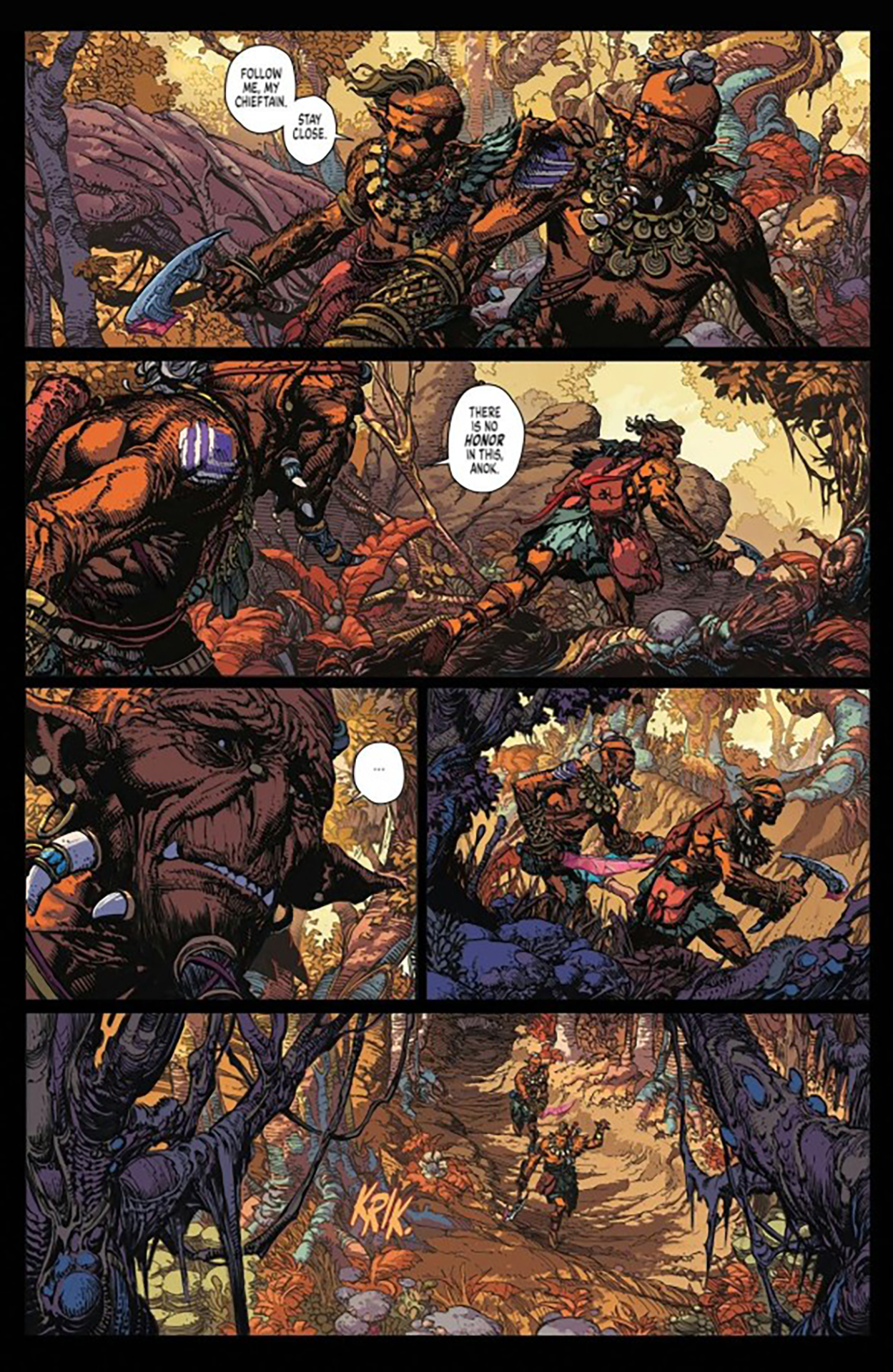
When I first talked to Robert, what he wanted to do was a real surprise to me, because it's not the kind of work that I'm known for, and not what I would have expected. There was a picture that I had drawn of Swamp Thing that he liked, and he wanted to kind of pursue that. It's like a case of a writer kind of knowing me more than I know myself, and it gave me a chance to explore a side of me that I had never really had the chance to explore before.
Robert, opening the first issue of one of your comics always feels like stepping into a whole world. It feels like there's new stuff around every corner that we'll eventually get to see. When you're prepping for a series like this, how much world-building do you do in advance, and how much of it comes naturally through the course of the story?
Kirkman: I prefer to world-build as I go. I try to focus on, like, is this opening scene interesting? Are these characters interesting? Is this a world I want to know more about? How can I make this something that people want to learn more about? That's my main focus.
And the game that I like to play with myself when I'm writing scripts is, let's mention something that's intriguing. I may have a vague idea of what something is, and sometimes I'll have a really solid idea about what something is, but when I'm enjoying the writing process the most is when the discovery that a reader experiences is also present for me.
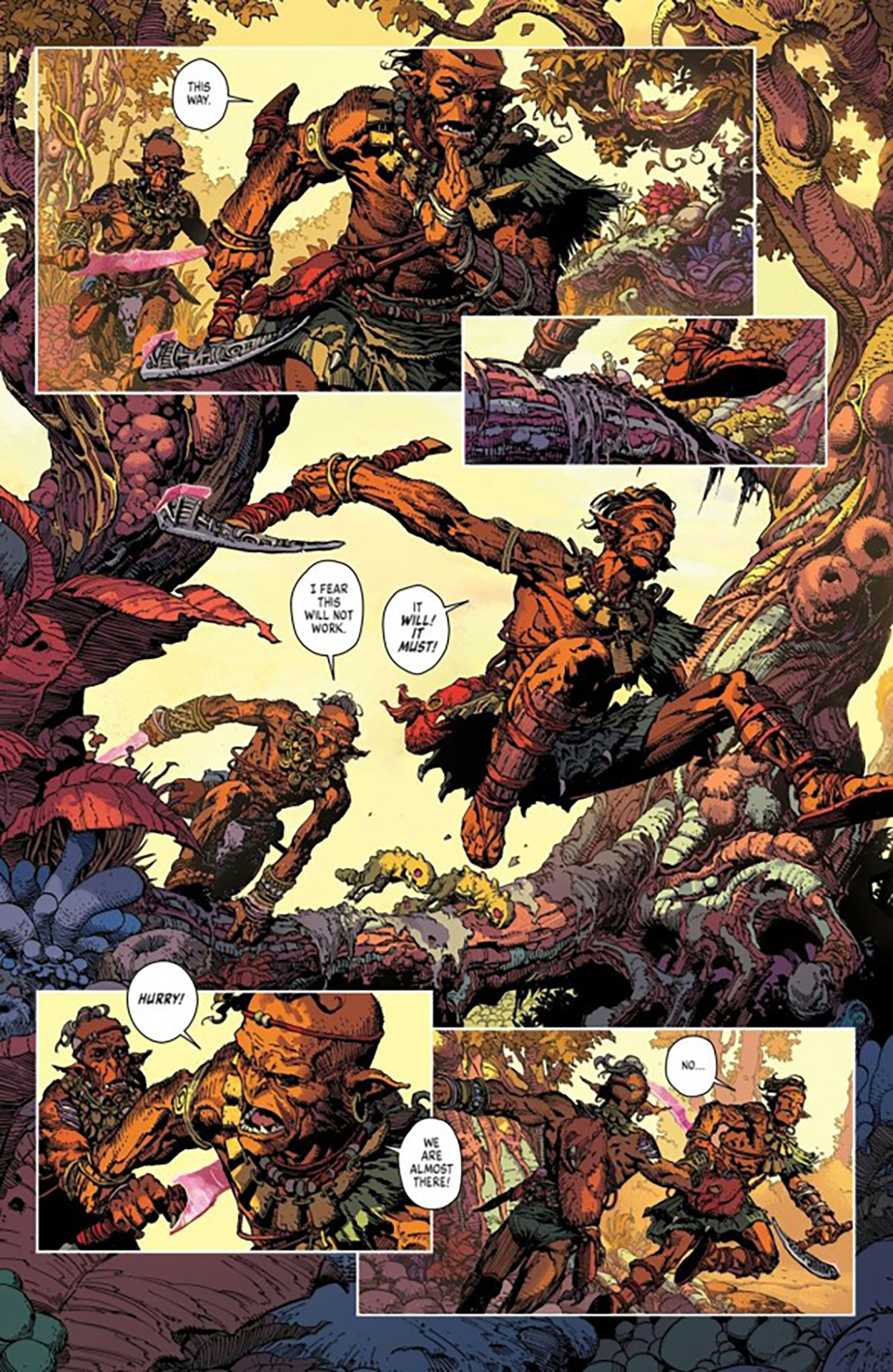
Another great segue into my next question, which is for both of you. The art and script work so well together. What's it been like developing your working relationship? And on a more technical level, how heavily is Skinbreaker scripted versus how much of the story develops in the art?
Kirkman: Script-wise, I was trying to get out of the way as much as possible. We put this book together to be a one shot, a shorter project, and it ended up growing as we worked on it. It wasn't necessarily supposed to. It was kind of just kind of written as one story, so I would not break down action sequences to fit a certain page length.
As I was writing things for David to interpret, I would go, "Okay, well, this needs to have a cool page turn moment here. And you know what? Maybe it needs another page turn moment, and that'll make it more intriguing," and that just makes scenes grow and grow and grow.
Finch: For my part, we talked quite a bit when we were starting, and went over some design decisions and all that kind of thing. So I had a very good idea of what Robert was thinking. And also the scripts that I got, they're not, you know, tomes of material, for sure. They're very succinct, but they made it very clear exactly what he was thinking, exactly what the point of every scene is.
I think especially working with such a renowned and very talented writer as Robert, the last thing I'm going to do is say, "Hey, let's do this and let's do that." So I kind of keep my mouth shut and just, you know, try and stay in my lane. But even doing that, he's so collaborative that I still had a lot of chances to kind of have my say in there. I kept my mouth shut and just drew the pages. And I still got a lot of influence in the story, and it's very gratifying.
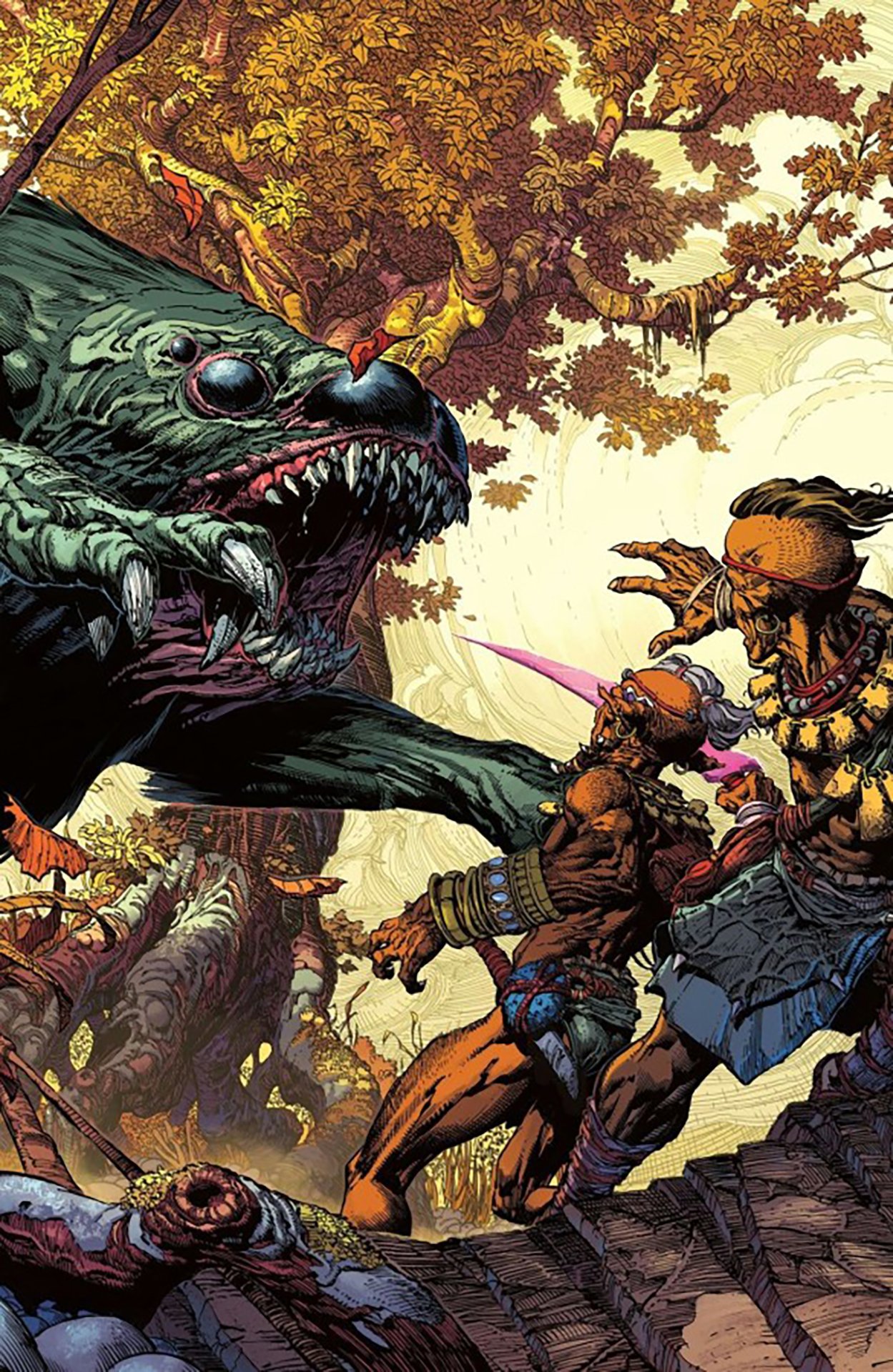
David, I want to talk about the rest of the art team on Skinbreaker. The colors by Annalisa Leone are so good in this book. They just fit with your art so well. I wanted to ask you about what it's been like working with her and developing the visual language of this comic together?
Finch: Annalisa has been absolutely incredible. I've got issue one, you know, in my hands, and I've been looking at the finished product all put together with her colors, and it brings the the world together in a way that, I'm looking forward to a black and white version, just because, you know, I put so much work into those little lines. But really, for me the colors make this book. She did such an amazing, amazing job.
She's really creative with the colors. It's an alien world. Everything is completely different, and she really accentuated that so much. I tried to put as much of that into the design as I could, but she really had to take that to the next level and give it its own feel. And it doesn't feel like a version of some other world that's out there. This really feels like it's own thing, and that's very much Annalisa.
David, you talked about working on a larger scale with these pages, putting in so much detail, really putting in a lot of love in this work, and that seems like such an important thing. How does it feel to be getting the opportunity to work this way, and how do you hope that that kind of carries forth through the industry?
Finch: Well, getting the opportunities was, and has been, a really big deal for me. It's not the kind of thing that we get as artists, the kind of time to really do everything that we possibly can with a project. I wanted to make the absolute most of it, so I'm very grateful for that. I'd love to see more of it.
Comics are their own thing, and they're also something that tends to be a seed for other things. I think that's great, but I'd love to see more emphasis on the actual comic. The European industry has some of my favorite books, amazing stuff, because it's shorter stories, and artists can really do all the work themselves. It's beautiful stuff, and we just don't get enough of a chance to do that here. I would love to see more of that.
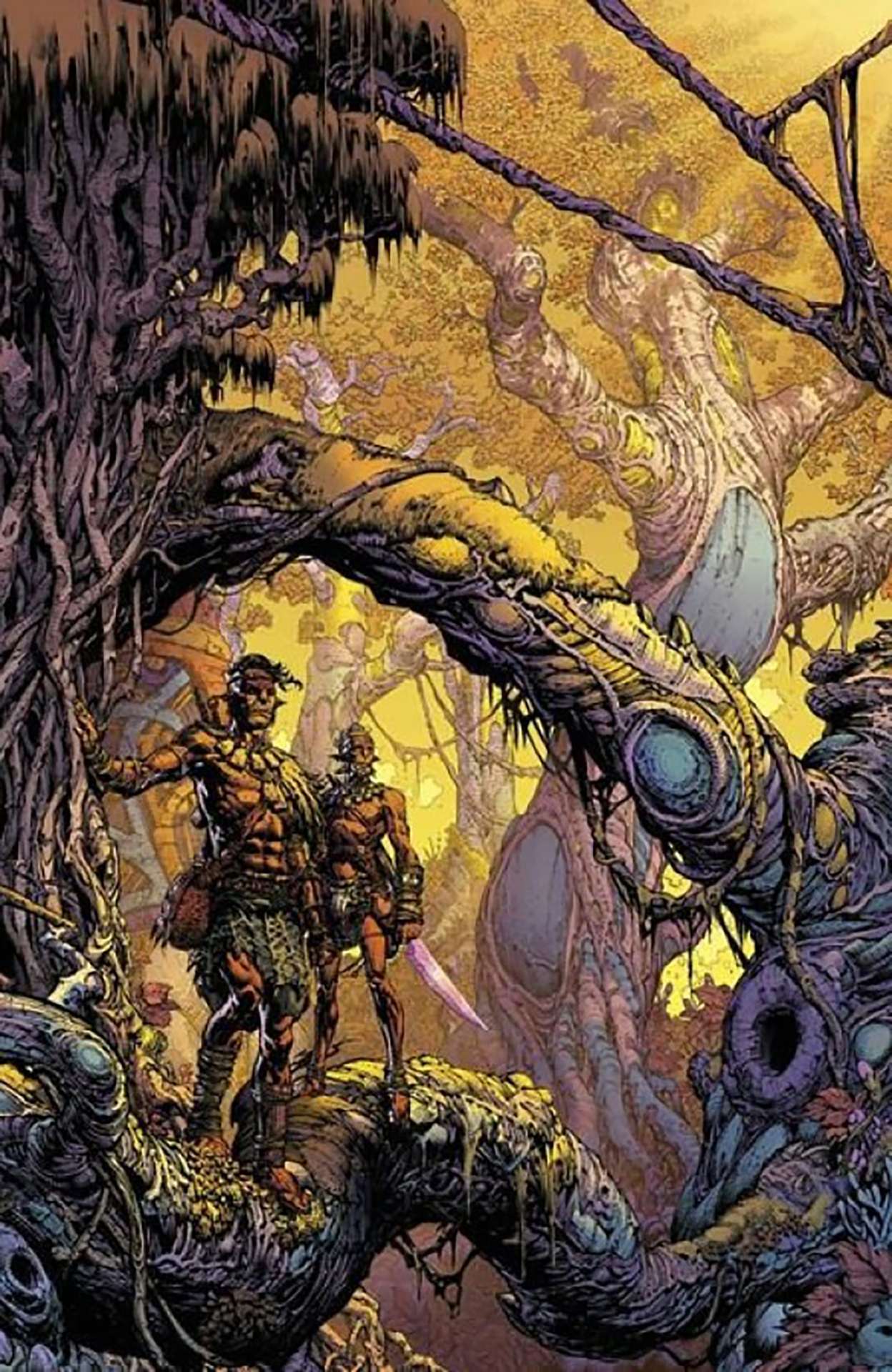
For both of you, I want to ask, what do you see as the big themes of Skinbreaker, the takeaways that readers should maybe be looking for?
Kirkman: I love for the readers themselves to be able to interpret the story and take from it what they will. Theme-wise, I think that there's a vein in the story that is all about not being scared of something new. Whether that's about doing unique projects in the comic book industry or our ever changing world that we currently inhabit, that's up to interpretation. But, you know, accepting change and rolling with the punches.
Finch: So much of it is change and the fear of change and the need for change. I feel a lot of fear of change right now. I think a lot of us do. So I think it makes it relevant in that way, and it makes me really relate with with all of the characters in the book, the characters that recognize the need for change and push for what they believe to be positive change, and the characters that resist it because it's it's not what they know, and what they know has been working for them for as long as their ancestors can remember.
Is there anything else you want to tell readers that's important to know about Skinbreaker?
Kirkman: I'll key in on the Treasury Edition version of Skinbreaker. There's a secondary version of the book that's coming out for each issue that'll be released alongside the standard version that is in a much larger format, that gives you a better glimpse of the art. It'll be presented in a much different way, on different papers. A different size. It'll be a very high end book. I'm really excited about it. I recommend people at least check that out in the shop before they decide which format they're going to buy.
Finch: I want to emphasize the fact that this book is finished. We made sure to get to the finish line before we ever announced and put it out there. So this is not going to be a case of buying a book and getting halfway through and either the quality taking a massive dip or major delays and a massive quality dip. You can count on, every month, going and finding the next issue, and it will be our very best work.
While we wait for Skinbreaker #1 to release on September 24, dig into the best episodes of The Walking Dead, ranked.
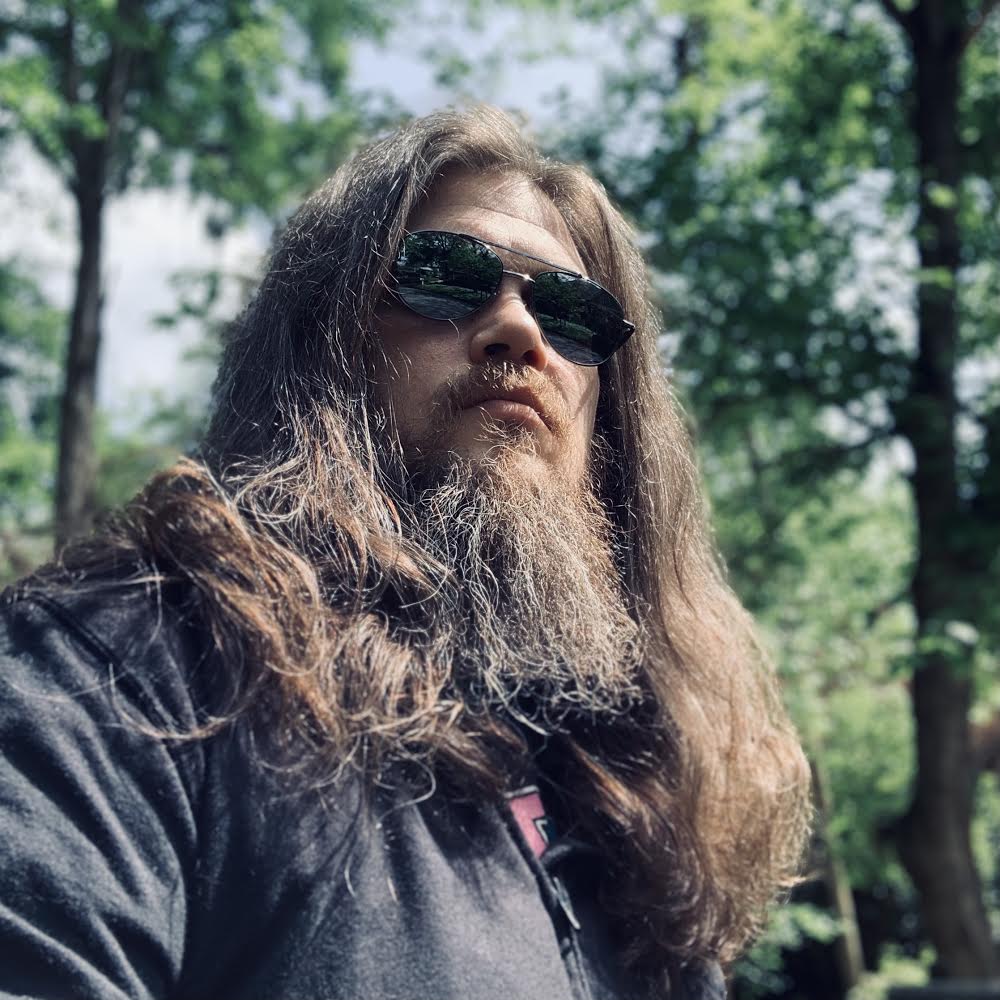
I've been Newsarama's resident Marvel Comics expert and general comic book historian since 2011, and now I'm the Entertainment Writer at GamesRadar+. I've also been the on-site reporter at most major comic conventions such as Comic-Con International: San Diego, New York Comic Con, and C2E2. Outside of comic journalism, I am the artist of many weird pictures, and the guitarist of many heavy riffs. (They/Them)
You must confirm your public display name before commenting
Please logout and then login again, you will then be prompted to enter your display name.
